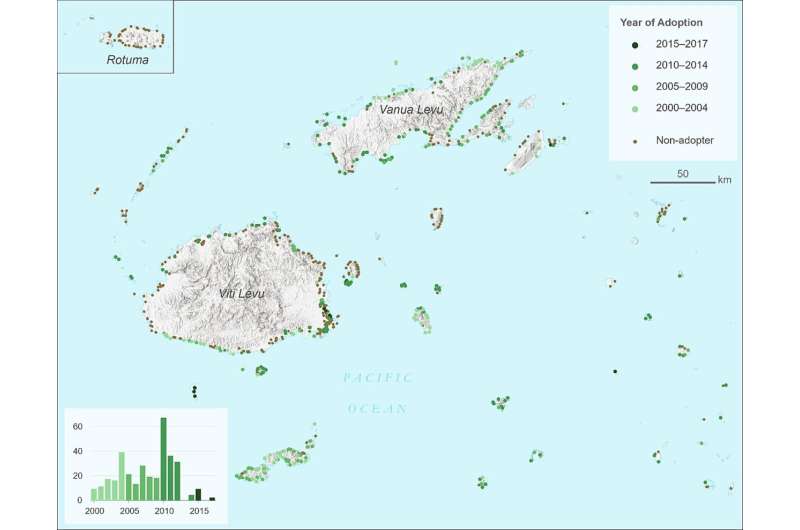A recent study published in Global Environmental Change, co-authored by researchers from Imperial College London, sheds light on how Indigenous-led initiatives can be effectively scaled up to protect marine ecosystems.
The research, led by Dr. Morena Mills and Dr. Tanya O'Garra from the Center for Environmental Policy, focused on the Locally Managed Marine Areas (LMMAs) network in Fiji. LMMAs are coastal regions where local communities, with the support of NGOs and universities, manage marine resources. This network fosters stewardship of these resources, aiming to improve both the livelihoods of coastal communities and the health of the surrounding ecosystems.
The study found a significant correlation between neighboring communities – villages with neighbors who had already adopted LMMAs were more likely to follow suit. Researchers documented that over 70% of the villages in Fiji that had adopted LMMAs had neighbors who had previously done so.
However, the study highlights that a network effect isn't the sole driver. Other factors influencing a community's decision to join the LMMA network included:
- Perceived benefits: The expectation of positive outcomes from participation in the program.
- Distance to tourist hubs: Communities farther from tourist areas were more likely to join.
- Presence of support organizations: Having a local NGO or university involved increased the likelihood of participation.
- Trust in external organizations: Communities needed to feel confident in the intentions and actions of NGOs and universities involved.
Importantly, the researchers emphasize that no single factor guaranteed LMMA adoption. Dr. Mills highlights this point, stating, "These conservation initiatives offer multiple benefits, and people are drawn to them for various reasons."
The research wouldn't have been possible without collaboration with Fijian researchers and local communities. Dr. Mills underlines the significance of empowering communities, citing the rapid spread of LMMAs in Fiji as a "globally significant example."
She further emphasizes the rarity of such successful, widespread conservation initiatives. While many such initiatives exist, few achieve significant scaling.
The Fijian partnership wasn't just about scientific expertise. Working with Fijian researchers provided crucial insights into the project's historical and cultural context. Dr. Mills highlights the importance of these connections, built over 15 years of collaboration, for "any good science."
While navigating logistics across 146 Fijian villages presented challenges, the researchers believe directly engaging with communities is vital for widespread application of their findings. Dr. Mills' prior experience leading a research group on scaling conservation initiatives made her instrumental in developing this project.
Building on their findings, the research team is developing a handbook to guide practitioners in scaling their own conservation initiatives. Additionally, Dr. Mills is collaborating on an app that allows practitioners to predict the potential spread of their programs.




0 Comments